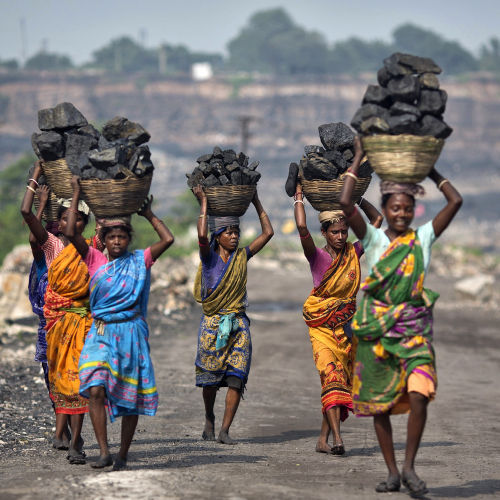Many investors no longer finance fossil fuels, but some Asia-Pacific emerging economies say they still need them as a source of energy
(AF) Five Asian countries are responsible for 80% of new coal power plants planned around the world, the Carbon Tracker group said on Wednesday, warning that most would prove uneconomical and the new plants would put international climate goals out of reach.
China, India, Indonesia, Japan and Vietnam plan to build more than 600 new coal-fired power projects, with a combined capacity of more than 300 gigawatts.
Coal use has declined in Europe, the United States and elsewhere, with governments under pressure to cut carbon emissions and keep the global average temperature rise below two degrees Celsius this century.
Carbon Tracker, an independent financial think tank that analyses the world’s transition to cleaner energy, said in a report that 92% of planned coal projects in the five Asian countries would not be economical, wasting up to $150 billion.
“Investors should steer clear of new coal projects, many of which are likely to generate negative returns from the outset,” said Catharina Hillenbrand Von Der Neyen, head of power and utilities at Carbon Tracker.
The five Asian countries now operate almost three quarters of the world’s coal-fired power plants. More than half of all plants are in China. Carbon Tracker said 27% of existing capacity was unprofitable and another 30% was only just breaking even.
According to a recent Moody’s Investors Service report, Asia’s slowing energy demand growth will affect coal power producers the most as governments tighten environmental standards and introduce policies that favour renewable energy.
“For coal power producers, tariff schemes to compensate for lower dispatch volumes or strategies to diversify their energy mix away from coal power are increasingly important,” Mic Kang, a Moody’s vice president, said.
INCREASING COMPETITION
Coal-fired power producers are also facing increasing competition from their renewable energy counterparts, which have made technological advances to improve efficiency and costs.
If the cost of energy for new wind and solar power plants – both with battery storage – in China and India declines annually by a high single digit to mid-teen percentage from the first half of 2020 to 2025-30, these alternatives will likely be just as cost competitive as coal power.
Coal power producers in China and South Korea face a higher risk of losing their cost-competitiveness due to the absence of consistent cost pass-throughs, Moody’s said.
Producers operating with consistent regulated tariffs or power purchase agreements in India, Indonesia and Vietnam are less exposed, the rating agency said.
Additionally, financing capacity for Asia’s coal power producers will continue to fall as funding markets for debt issuers become greener and investors lose appetite for coal power assets amid volume risk and uncertainty over the recovery of demand.
Carbon Tracker said $220 billion of existing coal plants could be left stranded if Paris climate targets were reached, it said.
By 2024, renewable energy sources would be cheaper than coal in every major region, the report said, adding that by 2026 almost 100% of global coal capacity would be more expensive to run than building and operating renewable power generation.
The International Renewable Energy Agency said last week the cost of renewable energy sources was undercutting new and some existing coal-fired power plants.
With reporting by Reuters
This report was updated on December 28, 2021 for style purposes.
ALSO SEE:
Indonesia to give coal the sack and retire fossil-fuelled power plants
Renewables gain global momentum, but coal in Asia the key concern
























